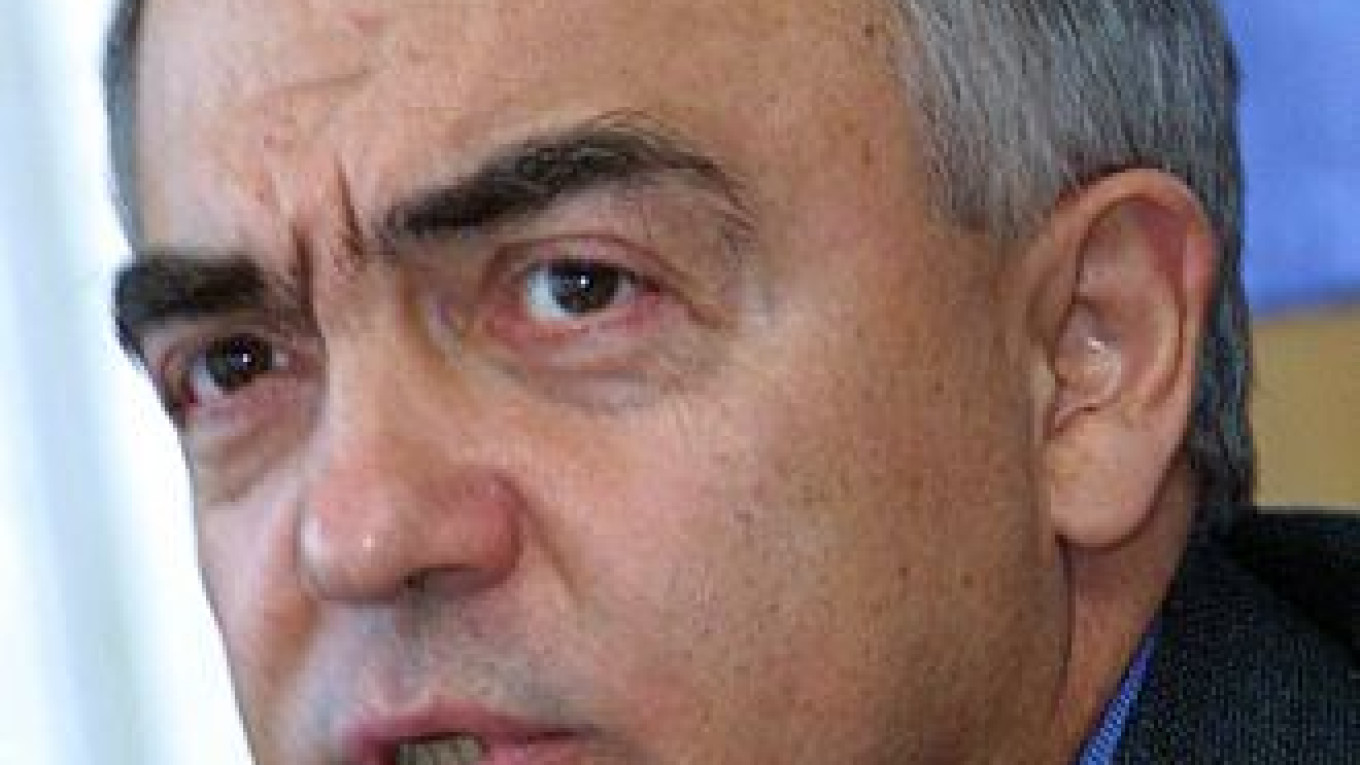The statement, published on the Kremlin's web site, did not give a reason for Kalinin’s dismissal.
The country’s prison system has been widely criticized by human rights groups and the media. Most recently, Hermitage Capital lawyer Sergei Magnitsky died in pretrial detention in November, prompting Medvedev to dismiss about two dozen senior prison officials.
Human rights groups welcomed Kalinin's dismissal, saying he had introduced a system of violence that was used to control and subjugate the more than 900,000 inmates in the country’s penitentiaries.
"At last it has happened. The struggle against his activities has gone on for many years," said Yevgeny Ikhlov, an activist with the Foundation in Defense of the Rights of Prisoners.
In 2008, leading human rights activist Lev Ponomaryov was charged with slander for calling Kalinin "the author of a sadistic system of torture" who was responsible for a network of 40 prisons that were effectively "torture zones." A court ordered Ponomaryov to retract the statement.
Ponomaryov also claimed last year that hardened criminals were being used to torture other inmates in efforts to extract confessions.
In another example of prison abuses, seven St. Petersburg prison officials were charged this month with abuse of office in connection with sexual violence against two prisoners who attempted to escape in September.
In 2006, when Kalinin reached retirement age, several media outlets incorrectly reported that he had resigned because of his age or because of an investigation into the abuse of inmates at a Perm region prison camp.
Kalinin, 63, served as chief of the Federal Prison Service from December 2004 until last August, when he was appointed deputy justice minister and charged with overseeing the penitentiary system.
Kalinin is one of the federal government's longest-serving officials. He assumed command of what was then the Interior Ministry's Main Corrections Directorate in 1992 and held on to his post when the prison system was later folded into the Justice Ministry.
A Message from The Moscow Times:
Dear readers,
We are facing unprecedented challenges. Russia's Prosecutor General's Office has designated The Moscow Times as an "undesirable" organization, criminalizing our work and putting our staff at risk of prosecution. This follows our earlier unjust labeling as a "foreign agent."
These actions are direct attempts to silence independent journalism in Russia. The authorities claim our work "discredits the decisions of the Russian leadership." We see things differently: we strive to provide accurate, unbiased reporting on Russia.
We, the journalists of The Moscow Times, refuse to be silenced. But to continue our work, we need your help.
Your support, no matter how small, makes a world of difference. If you can, please support us monthly starting from just $2. It's quick to set up, and every contribution makes a significant impact.
By supporting The Moscow Times, you're defending open, independent journalism in the face of repression. Thank you for standing with us.
Remind me later.


